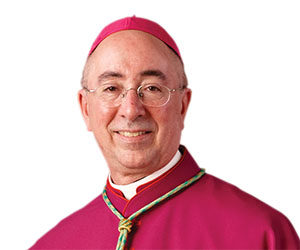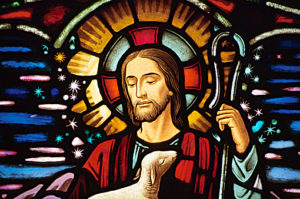 The image of the shepherd is one that occurs frequently in Sacred Scripture. It speaks of a special kind of leadership characterized by service, care and sacrifice. In John’s Gospel, Jesus says, “I am the good shepherd. A good shepherd lays down his life for the sheep.” (John 10:9)
The image of the shepherd is one that occurs frequently in Sacred Scripture. It speaks of a special kind of leadership characterized by service, care and sacrifice. In John’s Gospel, Jesus says, “I am the good shepherd. A good shepherd lays down his life for the sheep.” (John 10:9)
At the Chrism Mass in Rome in 2013, Pope Francis noted that a priest is one who is anointed to bring the healing power of God’s grace to the people, and to be particularly close to the marginalized of this world. Priests must be “shepherds living with the smell of the sheep.”

Shepherds are a wonderful model and guide for our lives. (Thinkstock image)
Priests are anointed as servants to minister to the poor, the prisoners, the strangers, the sick, the grieving and those who find themselves all alone. As ministers of God’s healing, priests are called to anoint with the oil of gladness, that is, the unction of God’s word to sooth and comfort the suffering of the people.
Pope Francis went on to say that ministers will not encounter God through constant soul searching and introspection, even though these things are helpful at times. Rather, the power of grace comes alive in going out and giving of self and sharing the Gospel with others. That grace is experienced when ministers give of the little ointment they have to those who have nothing. Priests are to be mediators between God and the people, not managers. What counts in ministry, according to Pope Francis, is “unction, not function.”
A few weeks ago, it was announced that Fr. Jeff Haines and I were named to be the new Auxiliary Bishops of the Archdiocese of Milwaukee. On the day of the announcement, Archbishop Jerome Listecki met with us individually, and presented each of us with the “Pope Francis Pectoral Cross,” which depicts Christ, the Good Shepherd with a sheep over his shoulders. By means of this gift, the archbishop has set a tone for us as shepherds “living with the smell of the sheep.”
As I approach this new role of leadership and service, I have been pondering how to prepare spiritually for this ministry. I believe that the key is to focus on the Gospels. At the heart of all four Gospels is the saving event of Christ’s death and resurrection. Taking up the cross is an essential dimension of discipleship. And for a minister of the Church, a spirituality of the cross is required – a dying to self and a dying to business as usual, in order to rise up and meet the needs of the people.
Jesus says that the good shepherd lays down his life for his sheep, and in ministry it is often necessary to die to self and to old routines, in order to rise up and be effective ministers to the suffering, the oppressed and the lost.
One thing that I have come to appreciate in my years of ministry is that it is not enough just to know about Jesus. It is essential to enter into relationship with him, and that relationship grows through prayer, through the celebration of the Sacraments, through meditation on the Scriptures, and, in a special way, in our encounter with Christ in other people in hospitals, nursing homes, jails, food pantries, and homeless shelters.
I pray that all of us called to be shepherds in the Church will be inspired by Christ’s example of humility, compassion and self-giving love. With the Good Shepherd as our model and guide, may we always be willing instruments of his mercy and care.
